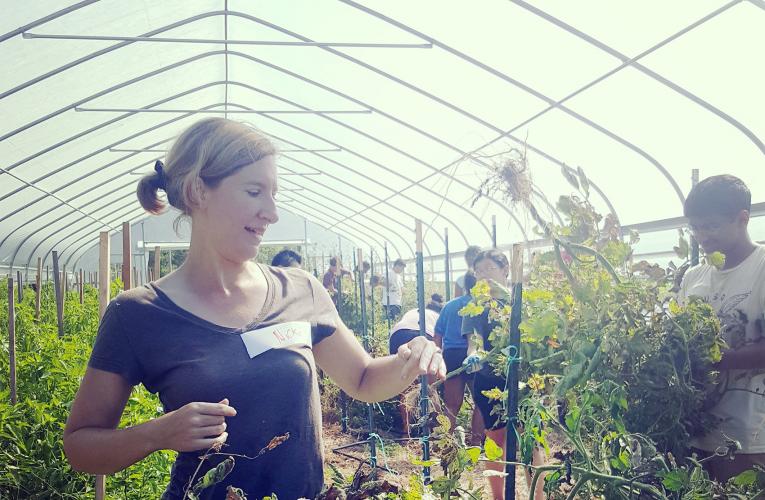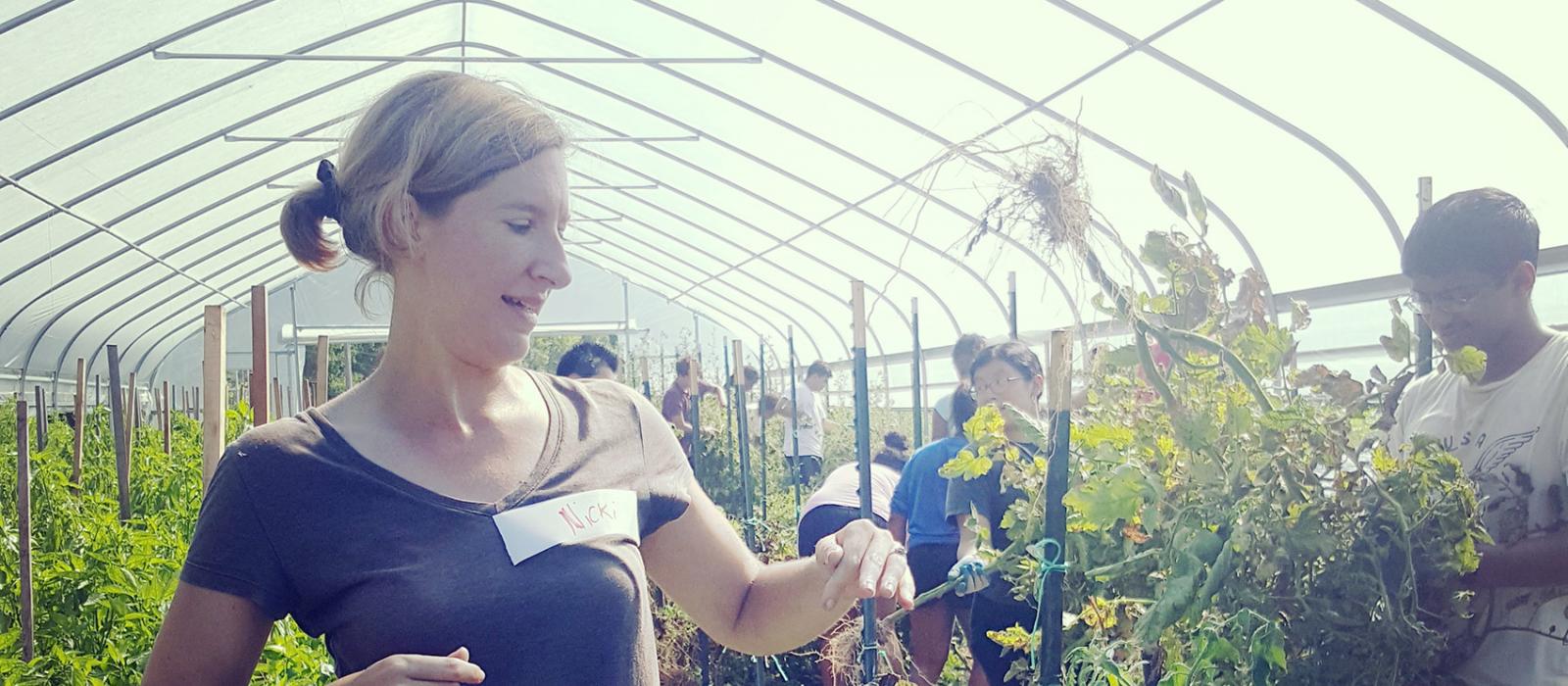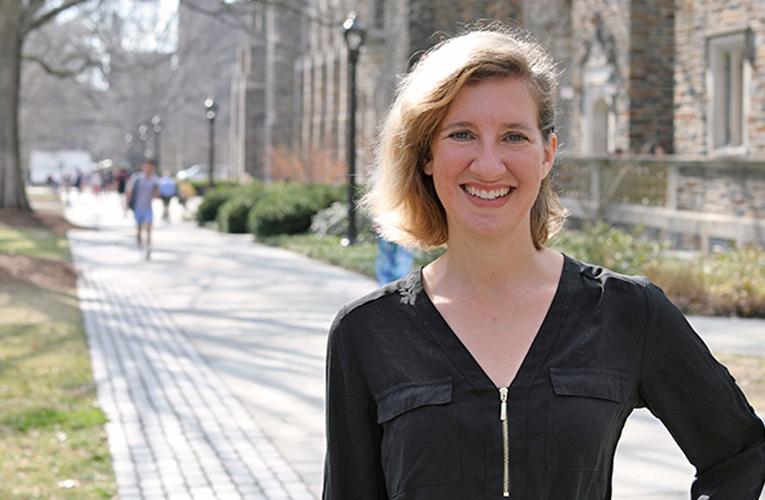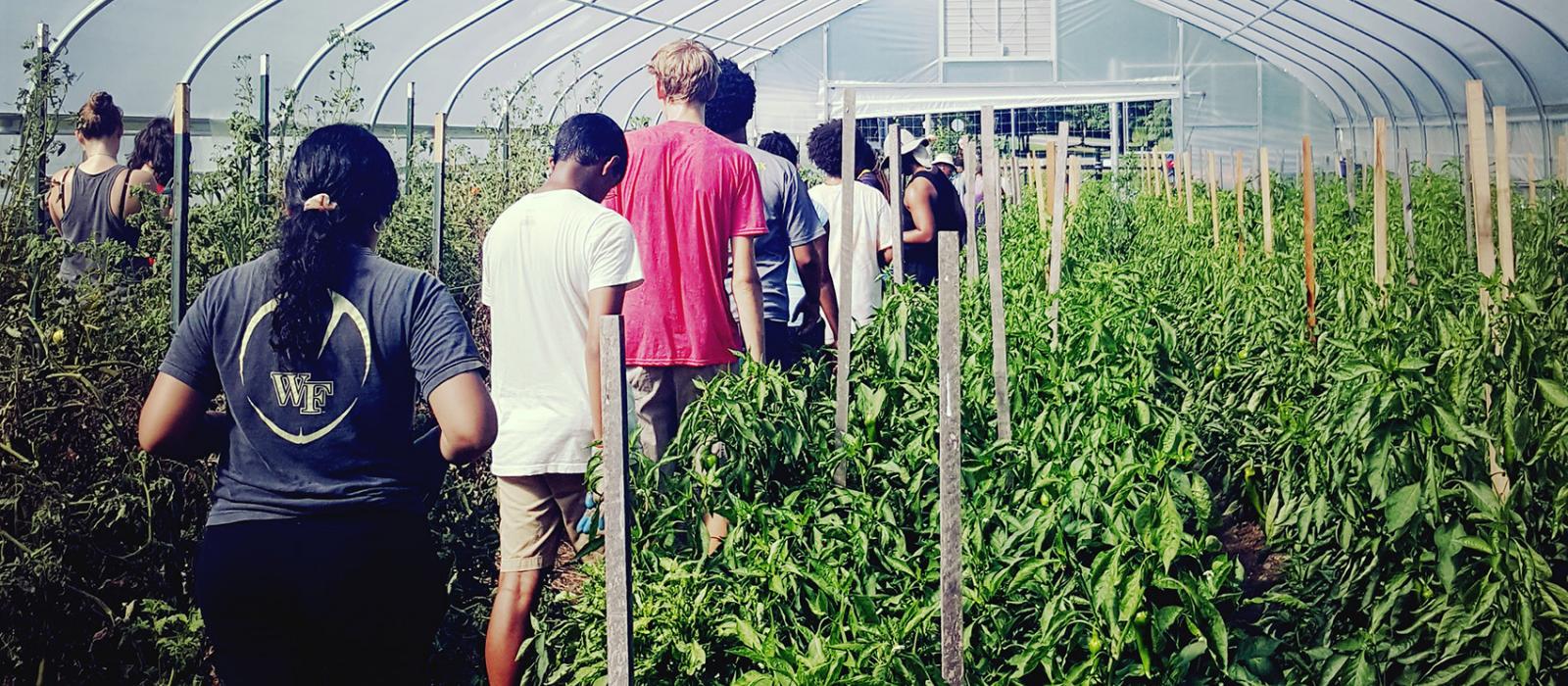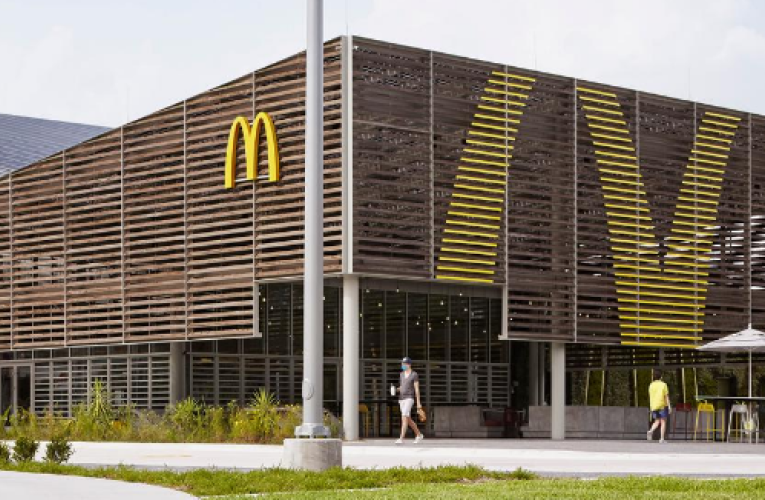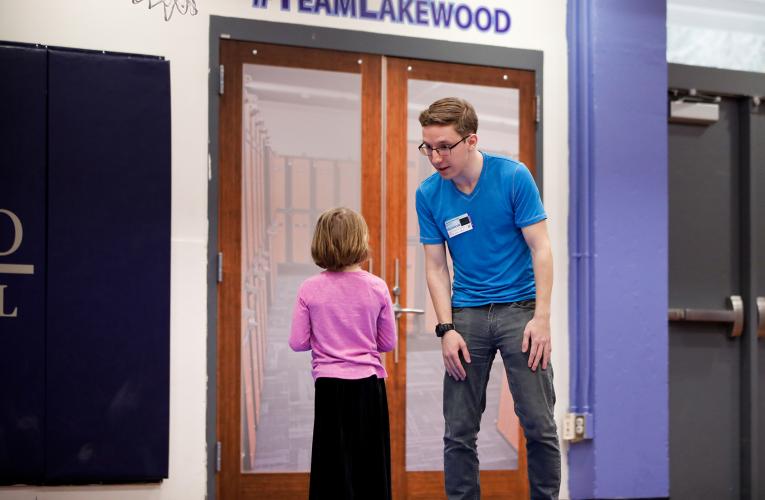We call ESSP a pathway program rather than a pipeline program because our goal is to help students explore their interests and options and blaze their own path, even if they don’t end up coming to Duke or the Nicholas School."
–Nicolette Cagle, director of ESSP
“We call ESSP a pathway program rather than a pipeline program because our goal is to help students explore their interests and options and blaze their own path, even if they don’t end up coming to Duke or the Nicholas School,” said Nicolette Cagle, director of ESSP.
Feedback from students who have completed the program – which includes an intensive two-week session of hands-on lab, field and classroom learning on Duke’s campus in July, augmented by individual and group mentoring over the next school year – is overwhelmingly positive.
- 100% said the program improved their understanding of science and their confidence in learning it.
- 96% said it increased their awareness of the role science plays in their everyday lives.
- 92% said it improved their understanding of what scientists do and its value to society.
- 77% said it increased their interest in taking more science classes and pursuing a career in a STEM field.
Seven program graduates are now attending Duke or are expected to attend, and dozens of others are pursuing or have completed degrees in STEM-related fields at other colleges and universities, Cagle noted proudly. Nearly all say their experience in ESSP was formative.
“ESSP opened my eyes to how there are opportunities in science for people like me, an African-American woman, and more specifically for people who love STEM but don’t want to be a doctor,” said Madison Griffin, who took part in the program in 2016 as a sophomore also at Durham School of the Arts.
Buoyed by her experience in the program, Griffin two years later applied to Duke, where she is now a biology major with a concentration in marine biology. Her story, she said, is proof “that ESSP can be used to support underrepresented minorities near Duke and inspire them to pursue their dream goals.”
For fellow ESSP graduate Sofia Morales-Calderon, that dream goal is to become a neurosurgeon.
“Learning about the interrelation of people, policies and the environment led me to want to do further study about how we are influenced physically and mentally by where we live and grow, which is a topic that has special resonance for me as a child of immigrants,” she said.
Following her 2017 ESSP experience, Morales-Calderon returned to classes at the North Carolina School of Science and Mathematics determined to seek out new avenues for understanding environmental influences, good and bad, on individuals and society.
Now a freshman at Duke, she is pursuing a self-designed interdisciplinary curriculum “to better understand trauma development through both quantifiable and humanitarian perspectives.”
Rania Hassan, a 2019 graduate of North Carolina State University who was a member of ESSP’s inaugural student cohort in 2012, was similarly inspired to chart her own path forward.
Her decision to major in environmental science and environmental policy at NC State, and her goal of working in the nonprofit or government policy spheres, stem from her time in ESSP, she said,
“The main thing ESSP did for me, as both a student and then later as a counselor, was underscore the broadness of the environmental field, the possibilities it offers, and the fact that there’s room in it for people with different interests and from different backgrounds,” Hassan said.
Hearing success stories like McKenna’s, Madison’s, Sofia’s and Rania’s “reminds me that our students inspire us as much as we inspire them,” Cagle said. “These are super-talented kids, many of whom will be the first in their family to go to college.”
Kai Kelley Jr., who took part in ESSP in 2014 as a rising senior at Voyager Academy High School and returned to the program in 2017 and 2018 to serve as a counselor, shares Cagle’s sentiment.
“Working with this program as a counselor allowed me to get to know some of the most compassionate, diligent and ridiculously gifted high schoolers ever,” he said. Those experiences are, in part, why Kelley has decided to pursue a master’s degree in college counseling and student development from Duke after earning dual Bachelor of Sciences degrees in geography and community and regional planning from Appalachian State University in 2019.
“ESSP is a shining example of what a local tool for positive social change looks like,” he said. “It definitely has served as a guiding light for me.”
ESSP partners with Durham Public Schools to select talented and under-served high school students from diverse cultural and socioeconomic backgrounds. Although the program could not be offered in 2020 due to COVID, Cagle aims to offer it again in 2021 and to open it to Granville County Public School students, too, in partnership with the Oxford Housing Authority.
Environmental Science Summer Program
Cultivating environmental leaders in our community through a two-week intensive environmental science program at Duke University.
Read more stories featured in the Duke Environment Magazine Fall 2020 issue.
